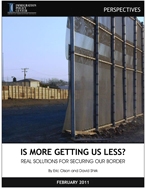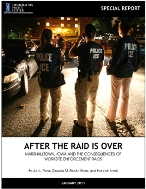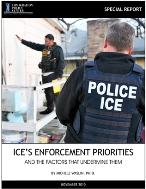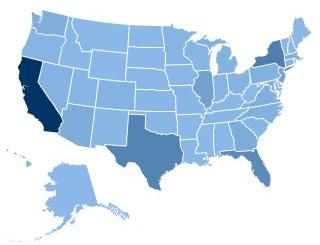 On June 30, 2010, the Deputy Assistant Secretary for Immigration and Customs Enforcement (ICE), John Morton, issued a memo to the agency that reflected the Obama administration’s oft repeated intent to focus removal efforts on serious offenders. Morton noted:
On June 30, 2010, the Deputy Assistant Secretary for Immigration and Customs Enforcement (ICE), John Morton, issued a memo to the agency that reflected the Obama administration’s oft repeated intent to focus removal efforts on serious offenders. Morton noted:
In light of the large number of administrative violations the agency is charged with addressing and the limited enforcement resources the agency has available, ICE must prioritize the use of its enforcement personnel, detention space, and removal resources to ensure that the removals the agency does conduct promote the agency's highest enforcement priorities, namely national security, public safety, and border security.
Coupled with last year’s announcement that ICE would not engage in the kind of major worksite raids that became common during the Bush administration, the “Morton Memo” potentially marks a new phase in the enforcement of immigration law. Moreover, the memo gives us insight into the Obama administration’s approach to prosecutorial discretion in immigration enforcement.
A close reading of the Morton Memo reveals, however, that it is likely to be subject to multiple interpretations, offering some guidance but little clarity for handling the hundreds of thousands of decisions made annually by ICE agents regarding the arrest, detention, and removal of individual immigrants. This report explains the key provisions of the Morton Memo, points out its strengths and weaknesses, and offers recommendations for additional guidance that should be issued to fulfill the promise of reform suggested in the memo itself.
Published On: Wed, Dec 01, 2010 | Download File








